Google Ads is widely recognized as the most powerful advertising network for affiliate marketing due to its ability to draw in targeted traffic. Unlike other platforms, Google offers a robust set of marketing tools, a huge audience, and consistently enhances its algorithms and protection against shady advertisers and scammers.
Google's advertising policy considers the promotion of products and services by anyone other than the business owner, such as through affiliate marketing, as a violation that can lead to account suspension. If the promoted offer falls within a grayhat vertical, the risk of account suspensions increases substantially.
To mitigate the risk of campaign and account bans, affiliates and media buyers employ various methods of content substitution, known as cloaking. In this article, we'll briefly explore the methods of cloaking Google Ads and how they differ from those used for Facebook.

Therefore, it's advisable to warm up ad accounts in advance or use trusted agency ad accounts, which can be obtained from services like YeezyPay.
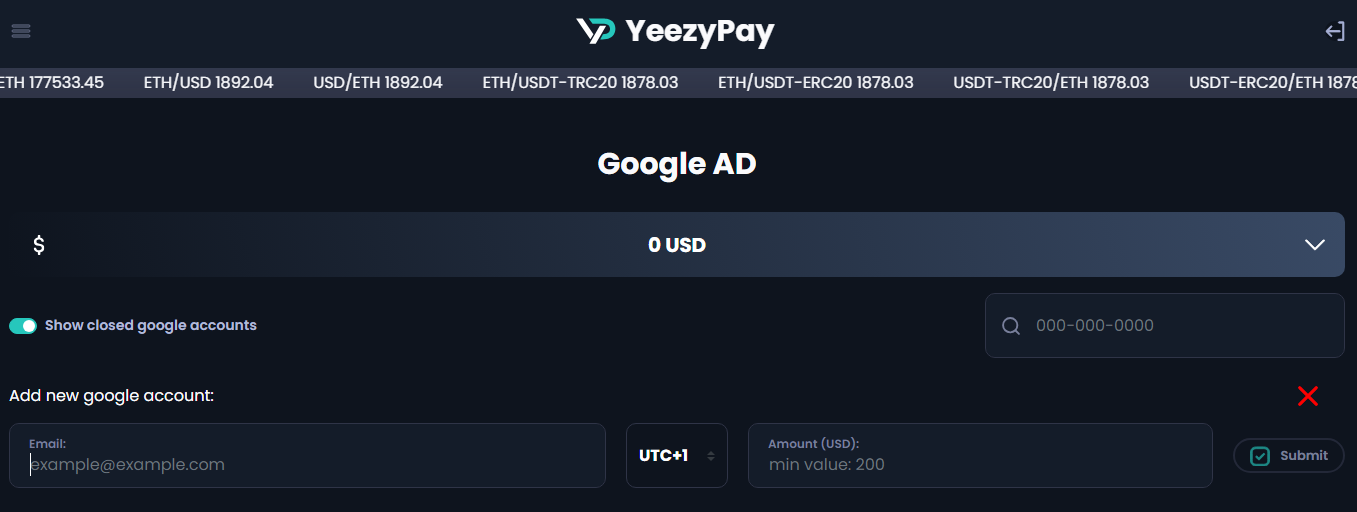
As for the methods of cloaking Google Ads at the time of writing this article, the most common options include:
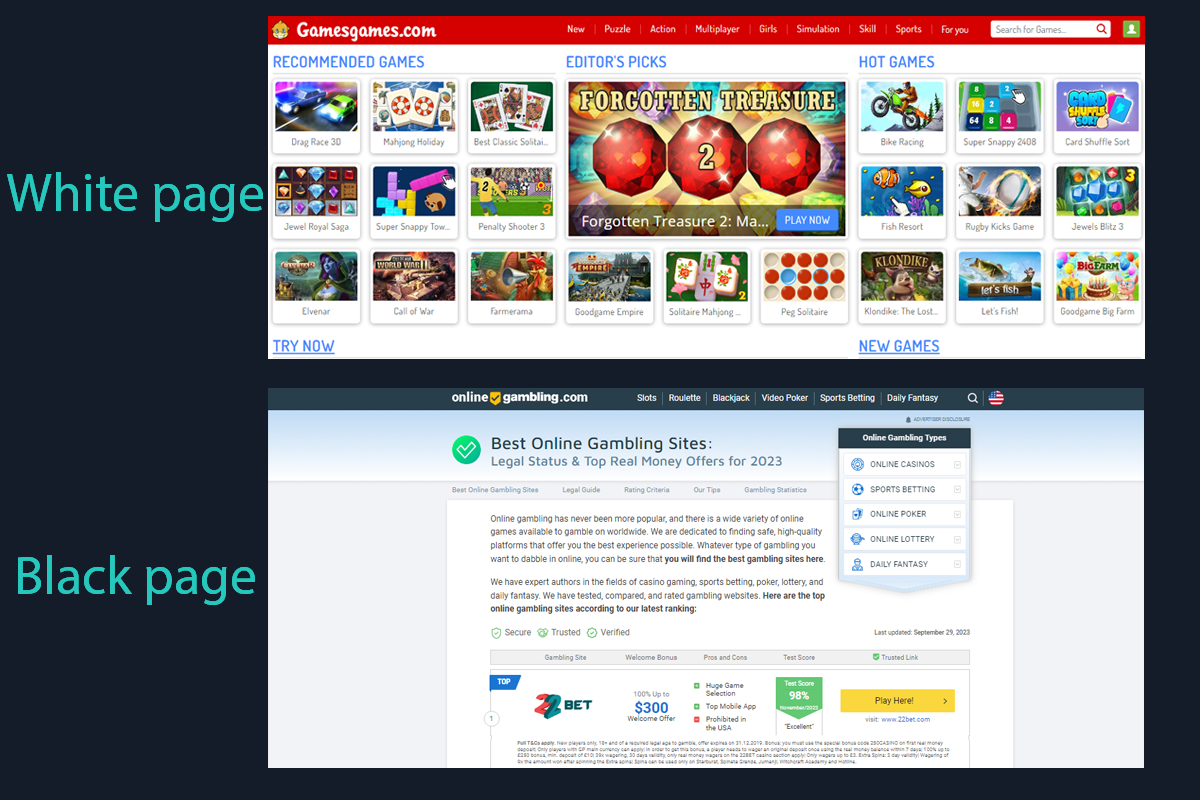
To do this redirect, you can use tracking software or specialized tools with lists of IP addresses and other data related to advertising bots.
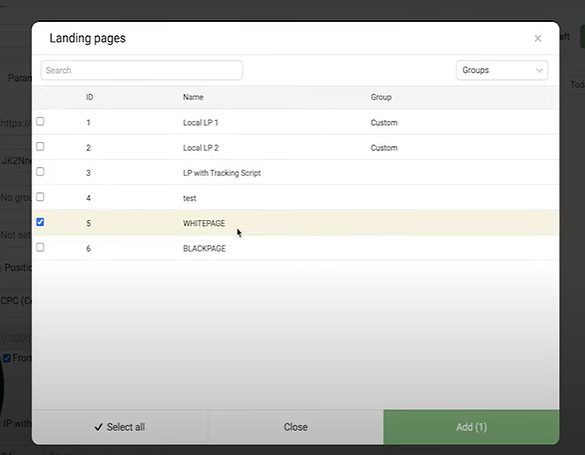
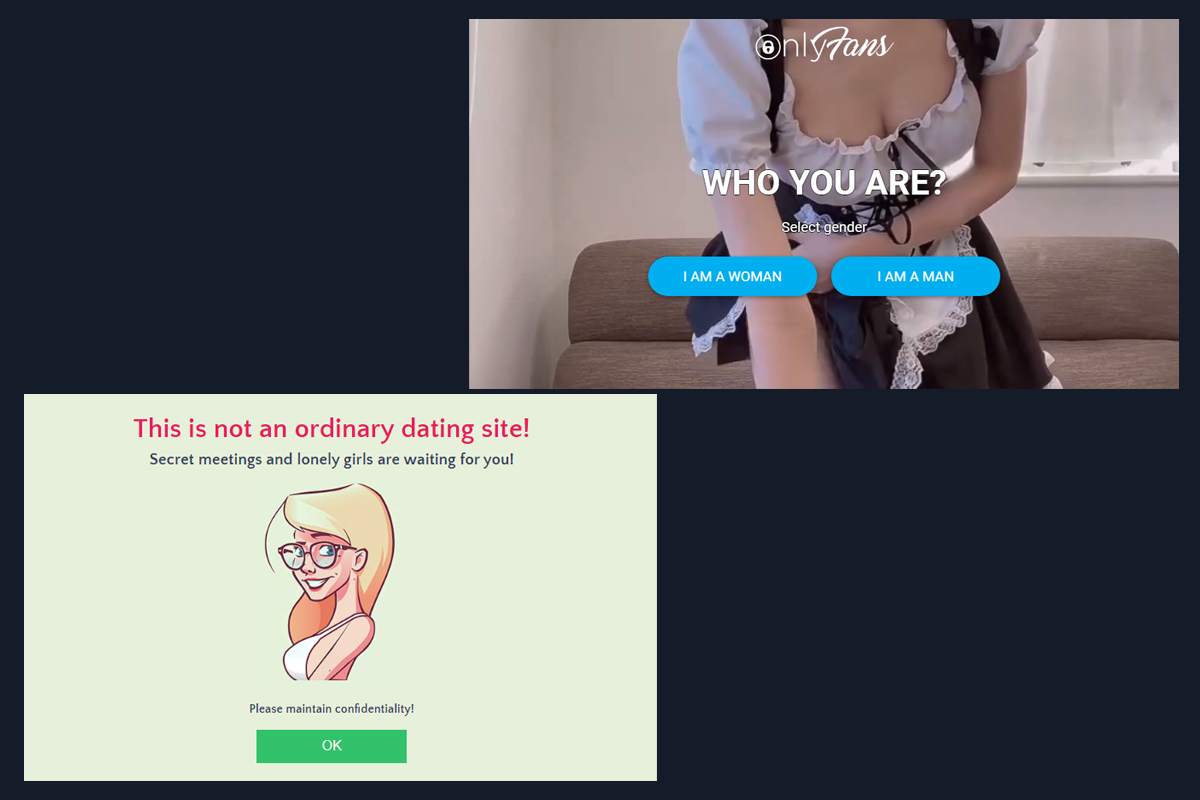
However, despite the simplicity and quick setup of pre-landing pages, they come with some drawbacks when used with Google Ads. These include a lower level of trust from the advertising platform, frequent account suspensions, and the challenge of finding a trusted domain and hosting for the page.
With this cloaking method, you can extend the life of an ad campaign if you use it together with a trusted domain and an agency advertising account from services like YeezyPay. In this scenario, moderation bots won't be able to get through to the blackhat landing page in 99+ out of 100 cases, but there's still a risk of the account getting banned by actual moderators for bypassing the rules.
Another advantage of agency accounts from YeezyPay is that after bypassing Google restrictions, they will allow you to spend much more than regular accounts.
To successfully bypass Google Ads' strict moderation, you must have a deep understanding of how the platform works, access high-quality software, use reliable resources, and even use trusted advertising agency accounts.
Google is very vigilant about any suspicious activity, and they can even suspend your account during the initial stages of setting up an advertising campaign. For instance, their algorithms can examine the landing page for any irregularities, and if they find any issues, they may suspend your account for "system evasion," which is tough to dispute, unlike suspensions due to "suspicious payments."
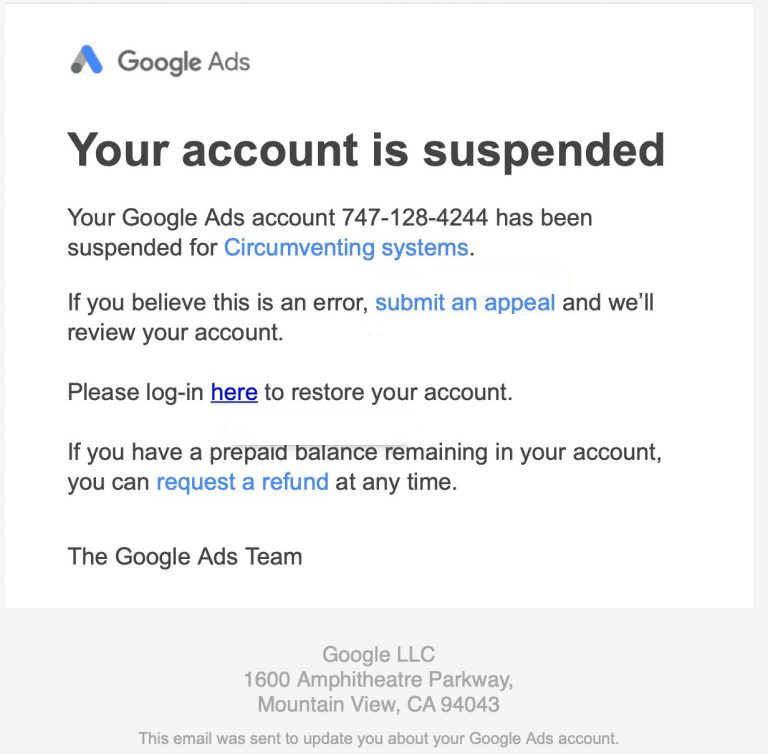
If Google detects cloaking attempts, the consequences are severe. Your account will almost certainly be banned, and it can be challenging to recover the remaining advertising budget. However, if you're using advertising accounts provided by a Google Ads agency, there might be ways to recover your funds. Services like YeezyPay, for example, can assist in withdrawing remaining funds and potentially unblocking some accounts associated with their agency advertising accounts.
Even if you're promoting whitehat offers, your landing pages need to be as clean as possible to pass Google's advertising campaign review. However, this cautious approach can lead to lower conversion rates on your landing pages. As a result, even whitehat offers often require using the specialized advertising tools and methods we’ve spoken about.
It's important to note that there is no perfect method for cloaking Google Ads that works flawlessly to this day. Even the best services in this field only differ in their ability to identify and block bots, and this information can quickly become outdated. Consequently, the effectiveness of cloaking largely depends on the strategies and techniques employed by the affiliate marketer.
Google's advertising policy considers the promotion of products and services by anyone other than the business owner, such as through affiliate marketing, as a violation that can lead to account suspension. If the promoted offer falls within a grayhat vertical, the risk of account suspensions increases substantially.
To mitigate the risk of campaign and account bans, affiliates and media buyers employ various methods of content substitution, known as cloaking. In this article, we'll briefly explore the methods of cloaking Google Ads and how they differ from those used for Facebook.
Methods for cloaking Google Ads
Cloaking is viewed as a prohibited practice by advertising platforms, involving content substitution to circumvent rules and mislead users and moderators. Even if an affiliate manages to pass the initial moderation for a prohibited offer, the platform's algorithms will reevaluate the content, leading to the blocking of the advertising account.Therefore, it's advisable to warm up ad accounts in advance or use trusted agency ad accounts, which can be obtained from services like YeezyPay.
As for the methods of cloaking Google Ads at the time of writing this article, the most common options include:
1.Redirects
With this method, an affiliate can send website visitors in different directions. They split the visitors into two groups: real users and bots. In simple terms, the affiliate can send the people they want to reach to a specific page, like online-gambling.com, while using another harmless domain, like gamesgames.com, in their advertising campaign. So, when someone clicks on the ad, they either go directly to online-gambling.com or through a link provided by the affiliate in the CPA network.To do this redirect, you can use tracking software or specialized tools with lists of IP addresses and other data related to advertising bots.
2. Iframes
With this method, a small script is added to the code of the promoted page. This script automatically opens a blackhat page on top of the original one. The blackhat page is what the user sees when they follow the link.3. Content
The content cloaking method involves putting two different pages within the same root folder of a domain: one for the target users and another for the moderators with bots. Using this technique, traffic is distributed via a tracker or service, which automatically matches data from bots to the appropriate content.Additional low-budget method
There's also an additional, low-budget method. Some affiliates prefer to use pre-landing pages for cloaking, which typically have one or two buttons with questions to clarify user intent.However, despite the simplicity and quick setup of pre-landing pages, they come with some drawbacks when used with Google Ads. These include a lower level of trust from the advertising platform, frequent account suspensions, and the challenge of finding a trusted domain and hosting for the page.
With this cloaking method, you can extend the life of an ad campaign if you use it together with a trusted domain and an agency advertising account from services like YeezyPay. In this scenario, moderation bots won't be able to get through to the blackhat landing page in 99+ out of 100 cases, but there's still a risk of the account getting banned by actual moderators for bypassing the rules.
Another advantage of agency accounts from YeezyPay is that after bypassing Google restrictions, they will allow you to spend much more than regular accounts.
Penalties for cloaking Google Ads and how they differ from Facebook
Penalties for using cloaking techniques in Google Ads are much more severe and challenging to avoid compared to other advertising platforms like Facebook. This is primarily because Google is a massive company with one of the most advanced search engines and a range of services. They continuously enhance their algorithms and machine learning systems, making it difficult to deceive their ad moderation.To successfully bypass Google Ads' strict moderation, you must have a deep understanding of how the platform works, access high-quality software, use reliable resources, and even use trusted advertising agency accounts.
Google is very vigilant about any suspicious activity, and they can even suspend your account during the initial stages of setting up an advertising campaign. For instance, their algorithms can examine the landing page for any irregularities, and if they find any issues, they may suspend your account for "system evasion," which is tough to dispute, unlike suspensions due to "suspicious payments."
If Google detects cloaking attempts, the consequences are severe. Your account will almost certainly be banned, and it can be challenging to recover the remaining advertising budget. However, if you're using advertising accounts provided by a Google Ads agency, there might be ways to recover your funds. Services like YeezyPay, for example, can assist in withdrawing remaining funds and potentially unblocking some accounts associated with their agency advertising accounts.
Conclusion
When launching advertising campaigns in Google Ads, especially in grayhat verticals or when trying to keep ads hidden from spy services and competitors, affiliates need specific tools and strategies. These include a reliable cloaker, trustworthy advertising accounts (preferably agency ad acounts), and other resources.Even if you're promoting whitehat offers, your landing pages need to be as clean as possible to pass Google's advertising campaign review. However, this cautious approach can lead to lower conversion rates on your landing pages. As a result, even whitehat offers often require using the specialized advertising tools and methods we’ve spoken about.
It's important to note that there is no perfect method for cloaking Google Ads that works flawlessly to this day. Even the best services in this field only differ in their ability to identify and block bots, and this information can quickly become outdated. Consequently, the effectiveness of cloaking largely depends on the strategies and techniques employed by the affiliate marketer.





